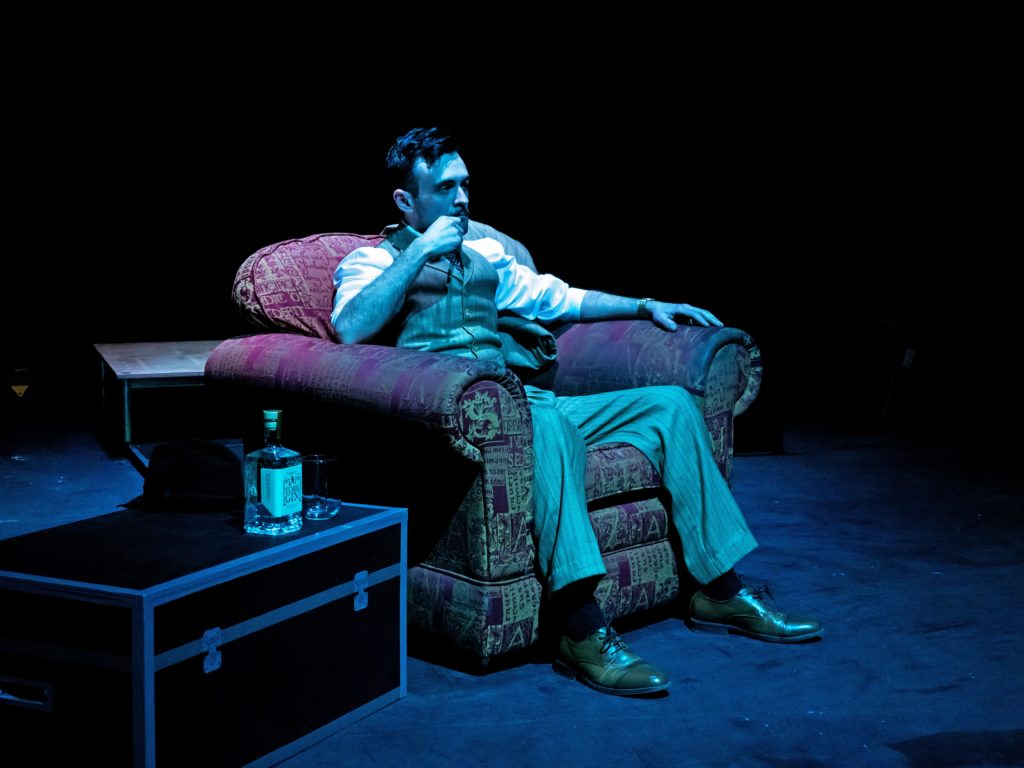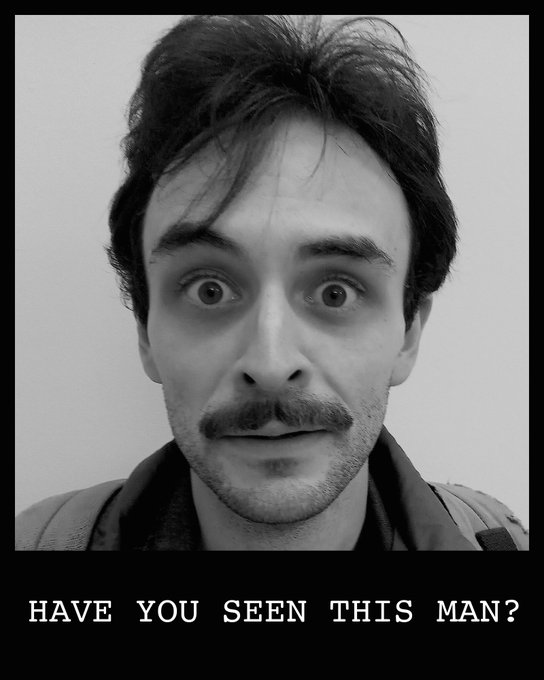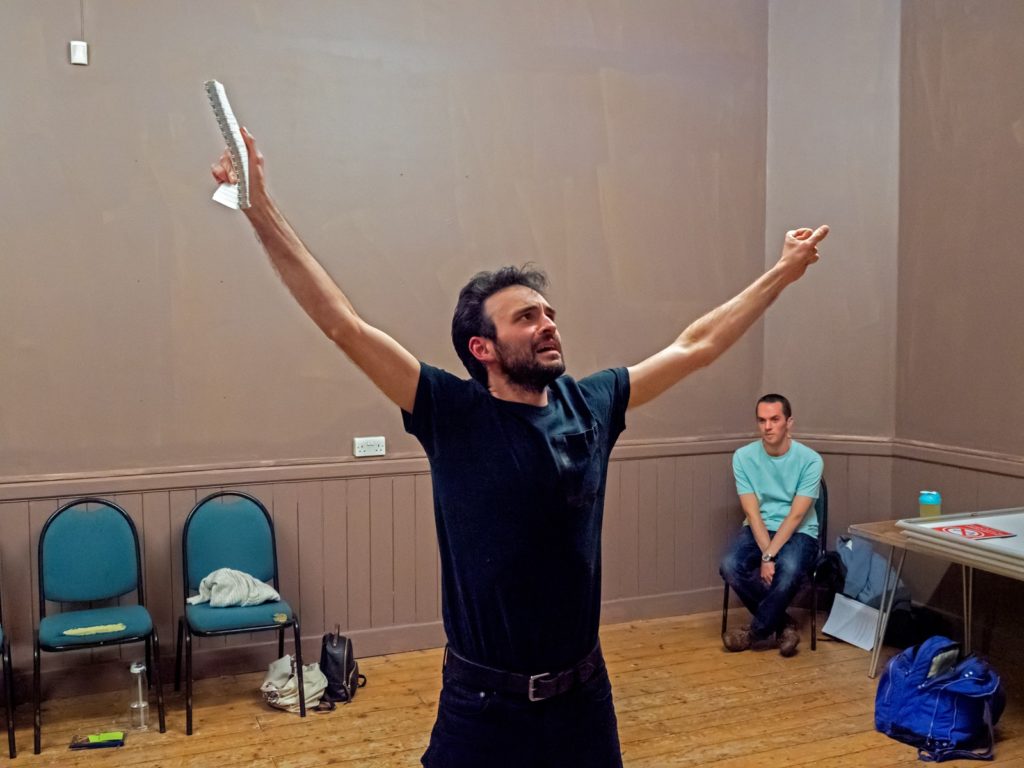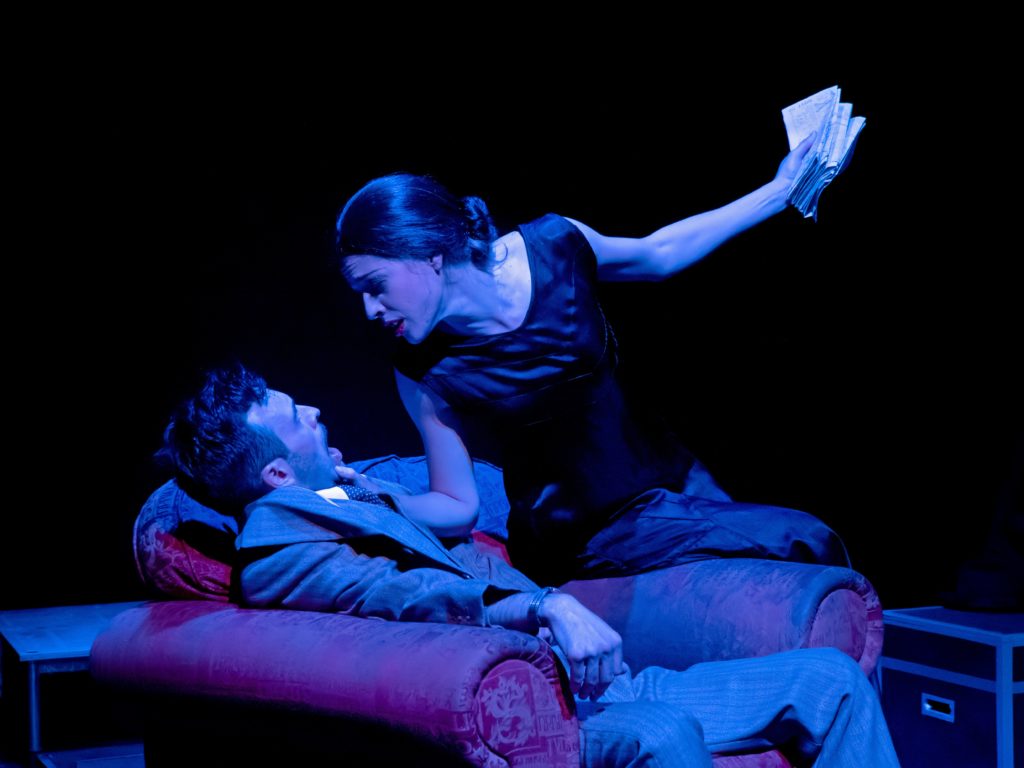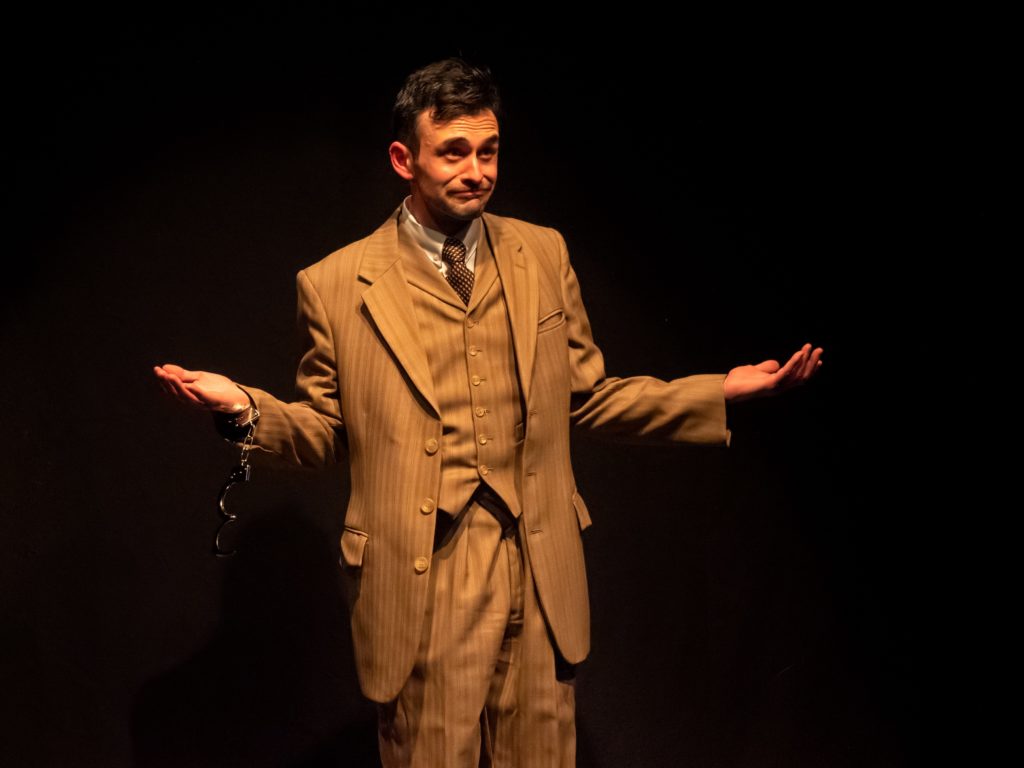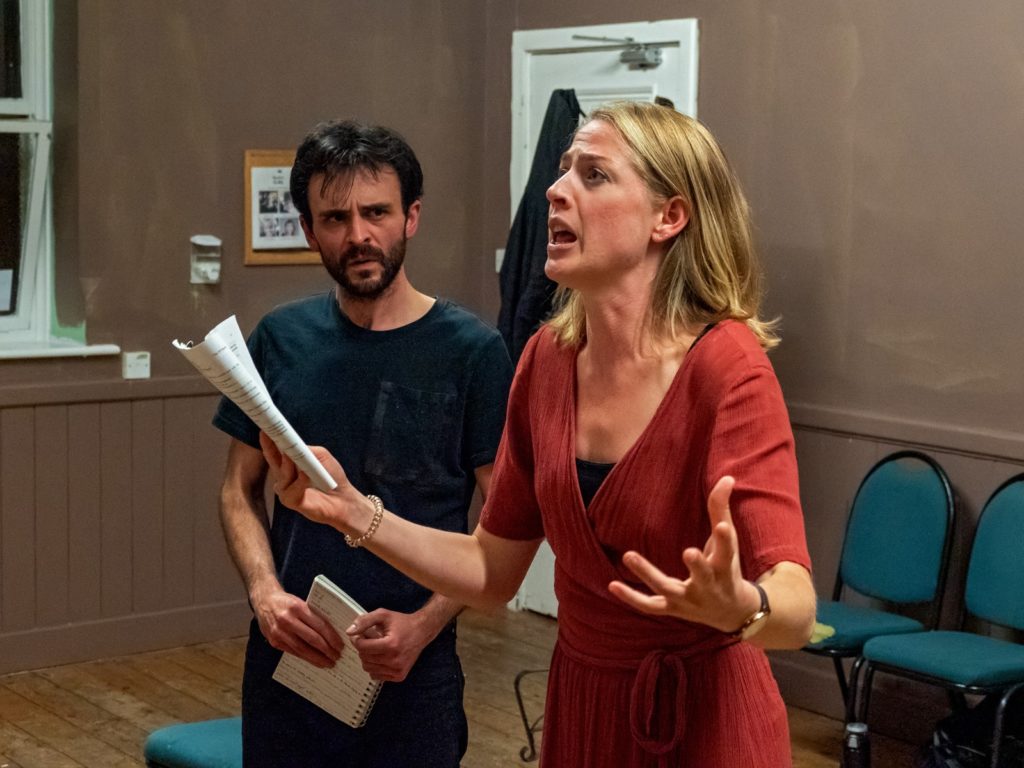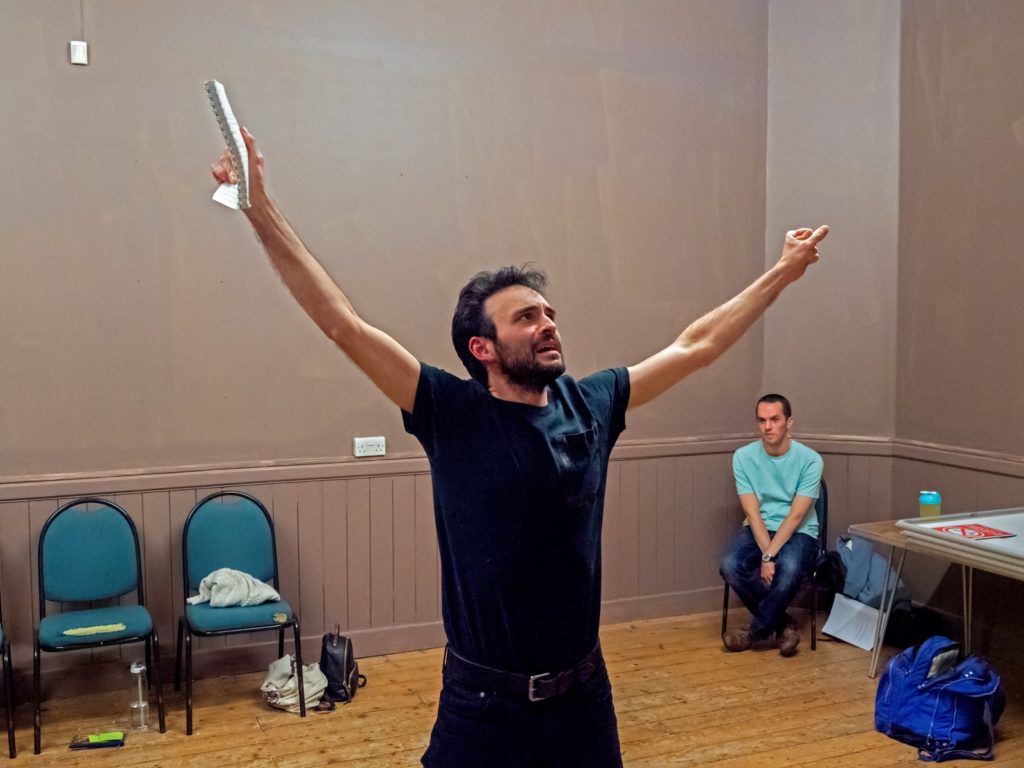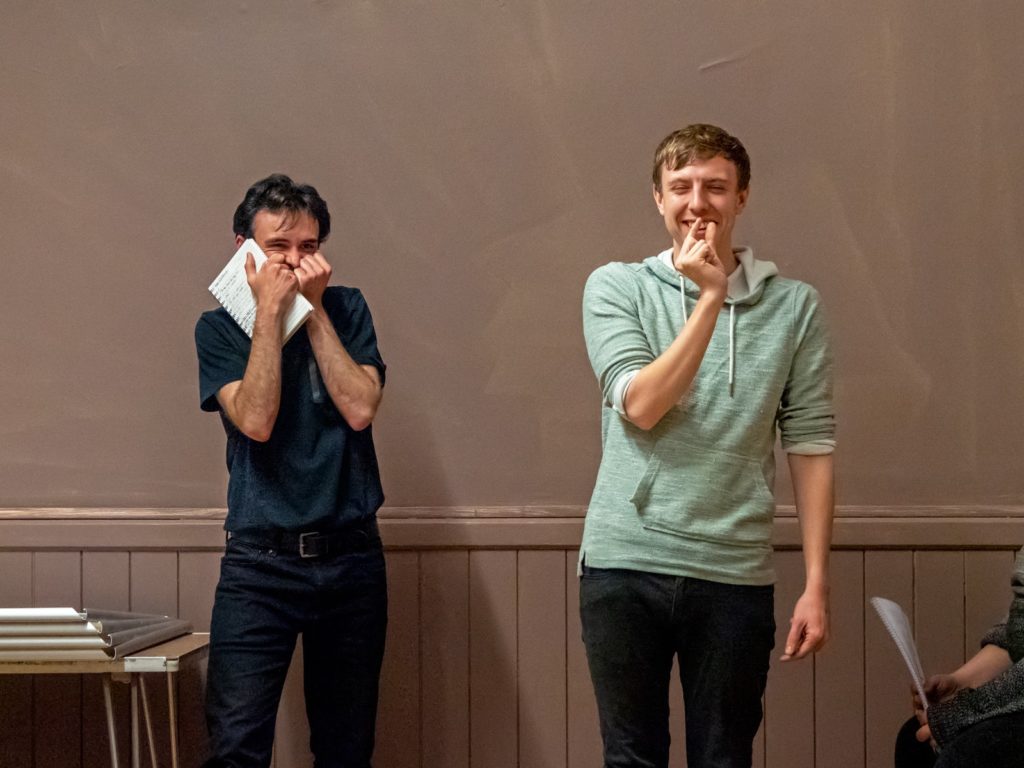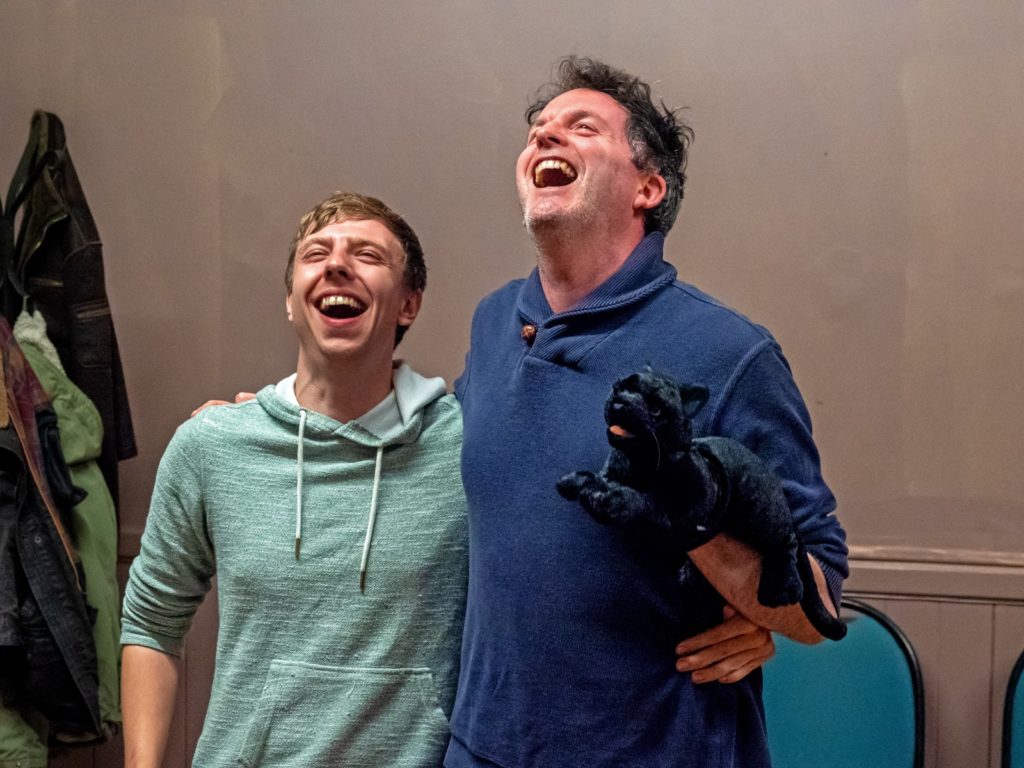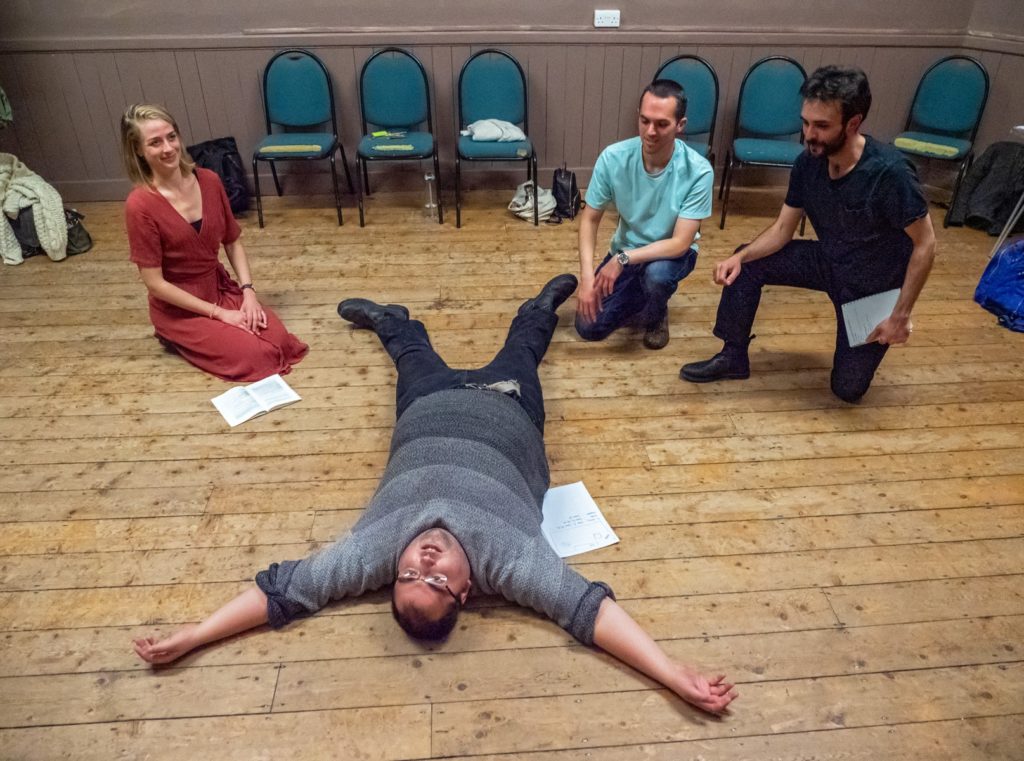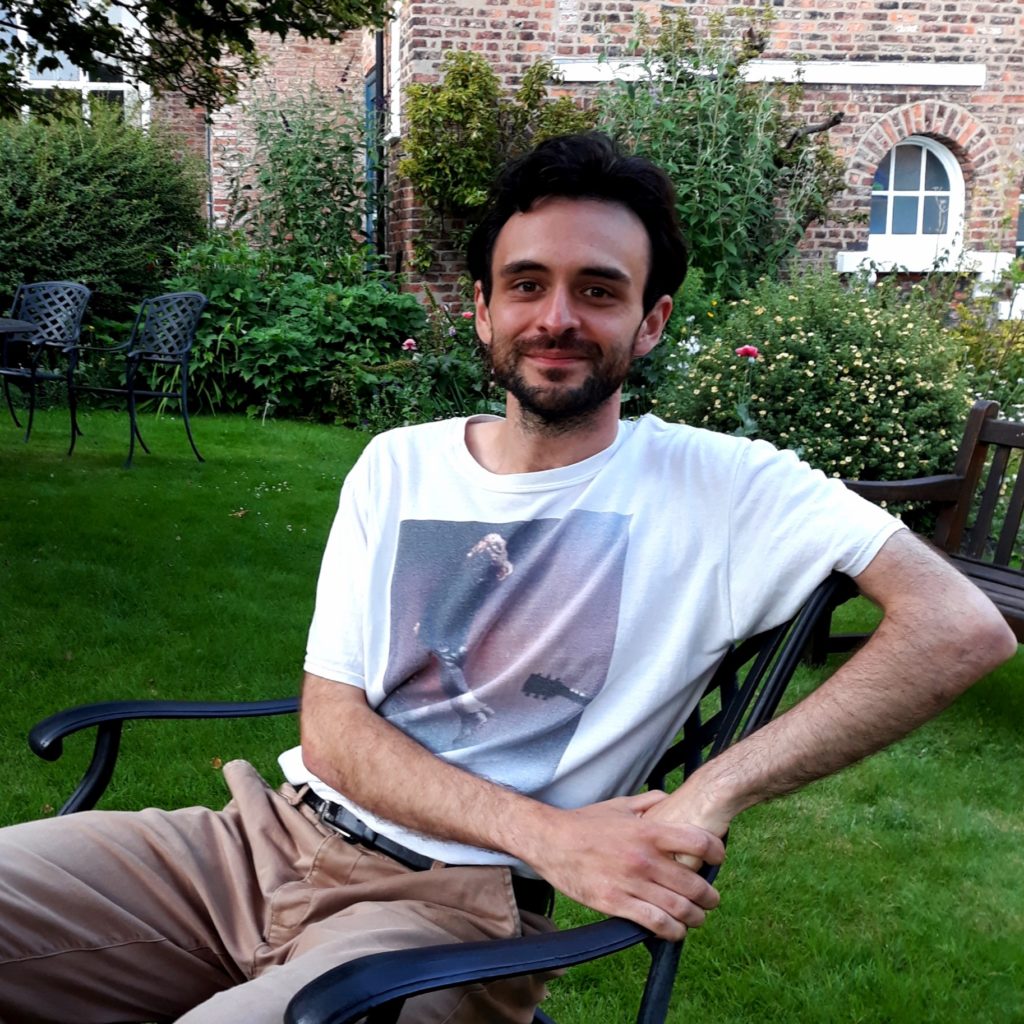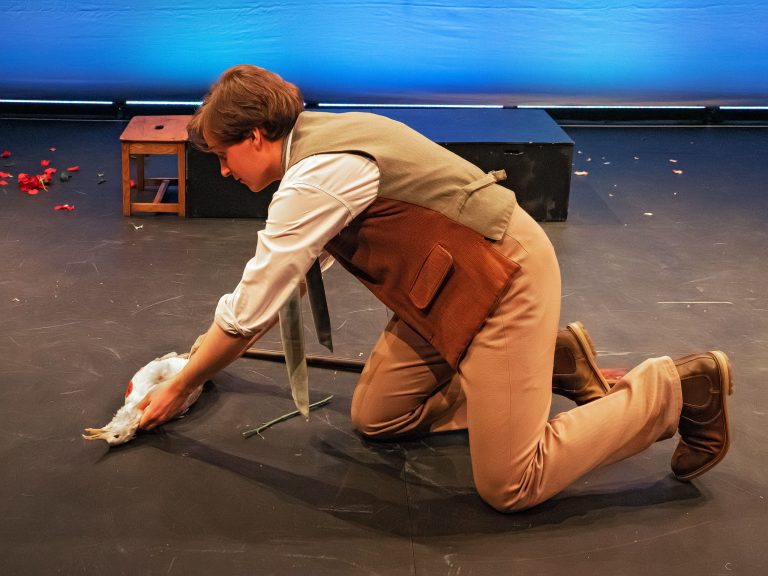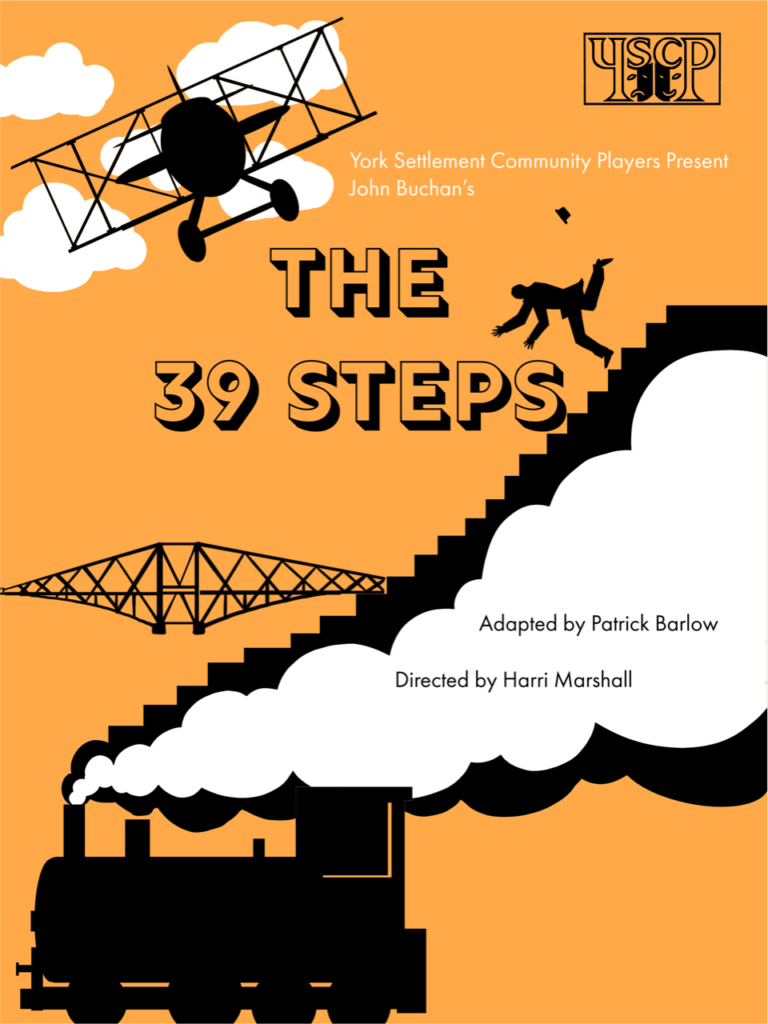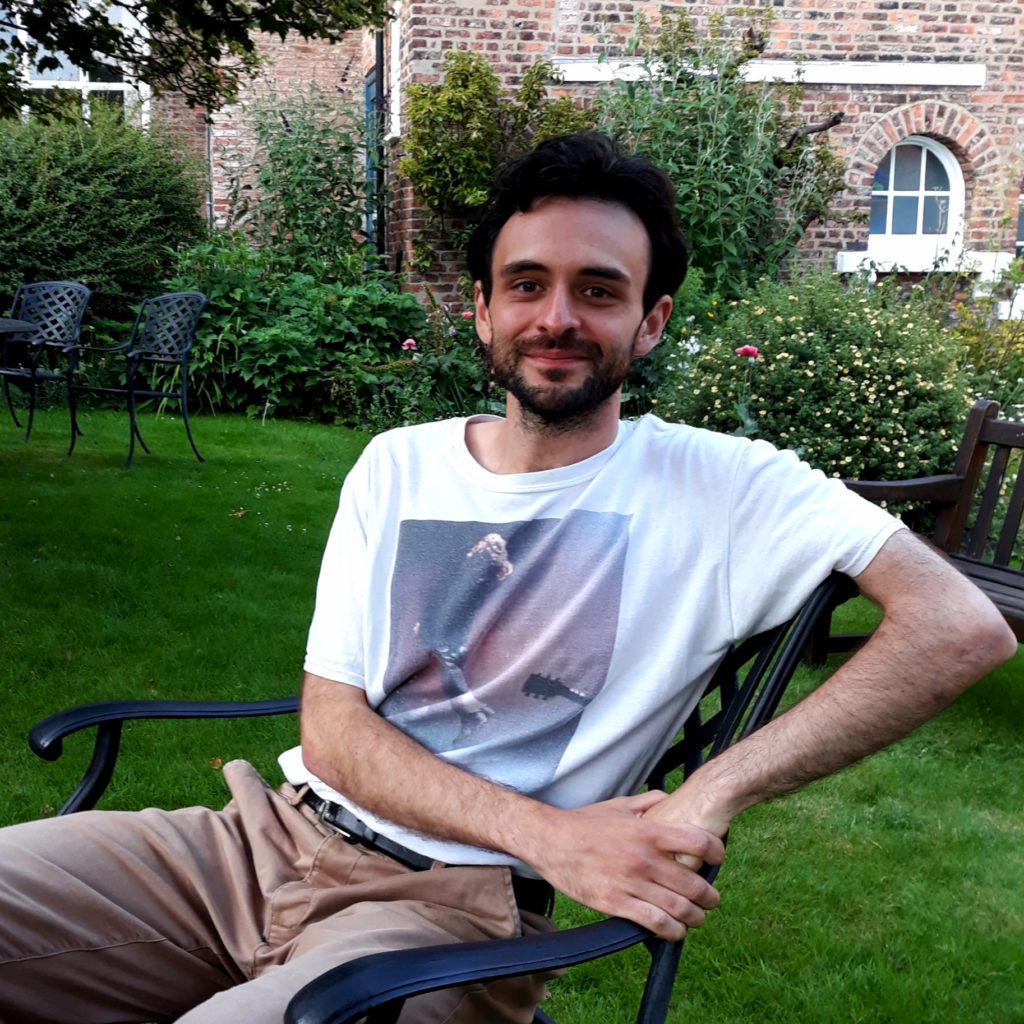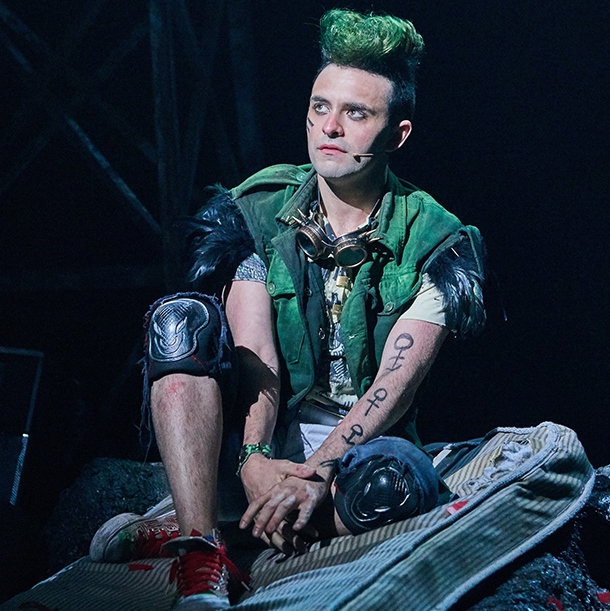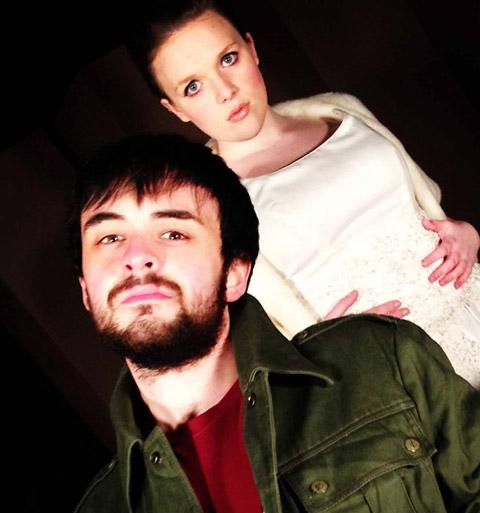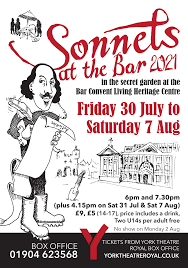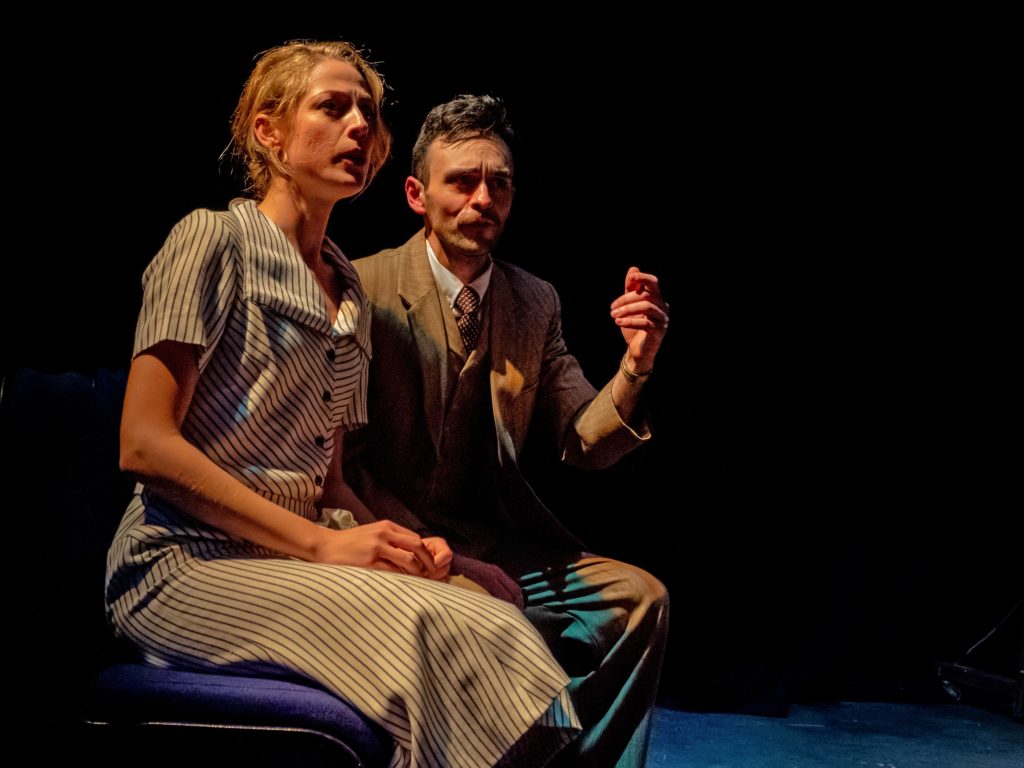
John Buchan, Alfred Hitchcock, Simon Corble, Nobby Dimon and Patrick Barlow’s The 39 Steps, York Settlement Community Players, Theatre@41, Monkgate, York, no longer dashing about with pencil-slim moustache panache until Sunday afternoon, alas, after cast illness.
DRINK in hand, it was time to sit back in the John Cooper Studio’s cabaret-style seating, relax and let the suspenseful comic drama begin.
Glass empty, (product-placed York Gin) bottle likewise, Aran MacRae’s Lieutenant Richard Hannay is slumped in his dull, lonely, newly rented Portland Place flat. He’s a man in an emotional pickle, on the edge, on the ledge, “tired of the world and tired of life” as the problems pile up. Suicidal, even, and in need of love as it later turns out.
So far, so sombre. What the dashing but hopes-dashed Hannay needs is “something pointless and trivial” to shake him out of his torpor. “I know,” he says. “Go to the theatre.” Boom, there goes the first big laugh, an insider knowing joke told against theatre, delivered with perfect comic timing, and so Harri Marshall’s production immediately hits its stride.
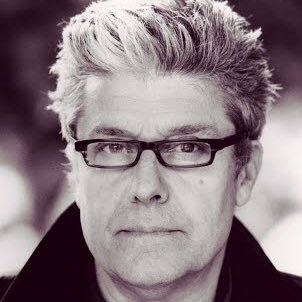
This is Patrick Barlow’s fast-moving, snappily clever version of The 39 Steps, the one he scripted for the West Yorkshire Playhouse and later West End and international success from an original Yorkshire-founded concept by Simon Corble and Nobby Dimon.
In a nutshell, Marshall’s cast is charged with hitching John Buchan’s story of murder, suspense and intrigue to the thrills, spills and daring deeds of Alfred Hitchcock’s 1935 film in a deranged marriage of comedy, farce, misadventure, mystery and thriller.
In Barlow’s National Theatre of Brent days, he would have his mock two-man theatre troupe, Desmond and Raymond, re-enact the Light Brigade and the Zulu Wars in a send-up of short-handed theatre companies.
Past productions of The 39 Steps divided its 135 characters between a cast of four, one man for Hannay, a woman for three women, and two men or a man and a woman (as in Rowntree Players’ 2015 production at the Joseph Rowntree Theatre), nominally called Man 1 and Man 2, for the rest.
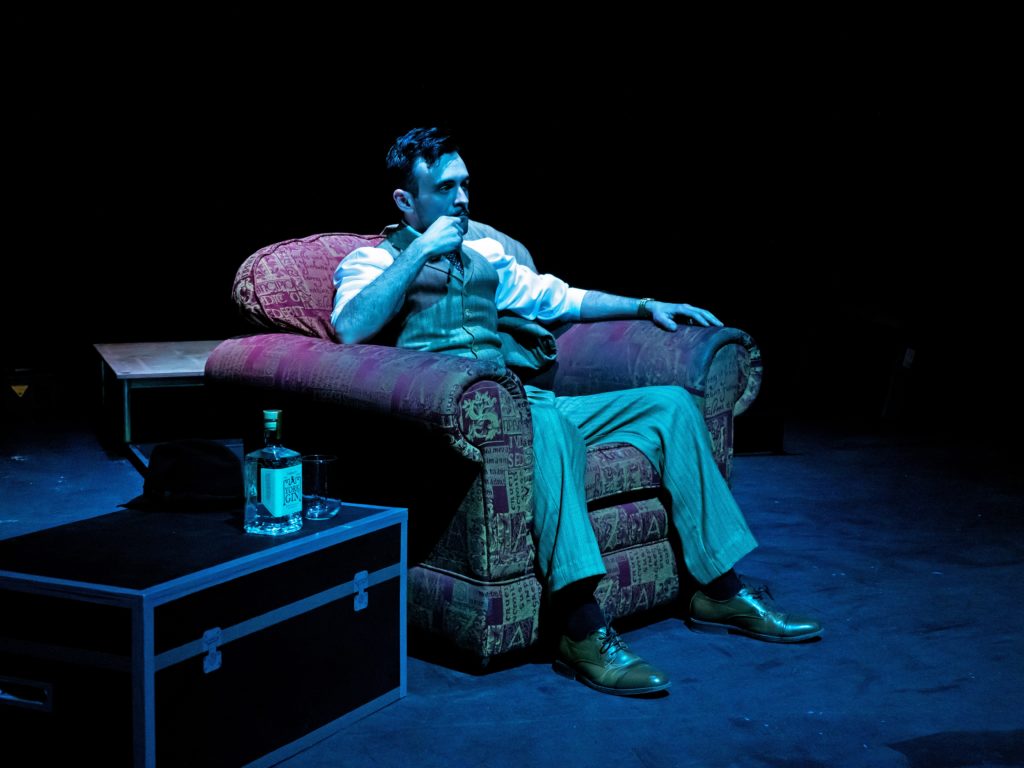
Marshall marshals rather more forces, calling on six men in black, Daniel Boyle, Andrew Isherwood, Matthew Lomax, Jim Paterson, Matt Pattison and Stephen Wright, to take on Barlow’s trademark needs-must, bargain-basement theatre style as The Clowns.
This demands that they must improvise props on the hoof amid the dearth of resources, wear multiple hats metaphorically and sometimes physically in leaping from role to role, and somehow ensure the smooth delivery of a performance, (hoping the audience won’t notice the absence of an errant stage manager, but Barlow/Marshall knowing they will).
From Lip Service to Mischief’s The Play That Goes Wrong, this is a slick, precise, unflappable comic device that has borne the ripest fruit, and here Marshall’s misrule of six brings a new dimension to both the madcap comedy capers and to the underlying darkness.
Barlow’s play often draws comparison with the anarchic spirit and teamwork of Monty Python; now, after Marshall’s innovation, the absurdist League of Gentlemen come to mind too. Daniel Boyle’s voice and looning eyes remind you of late Python Terry Jones; Matthew Lomax’s female characterisations echo the Gents.
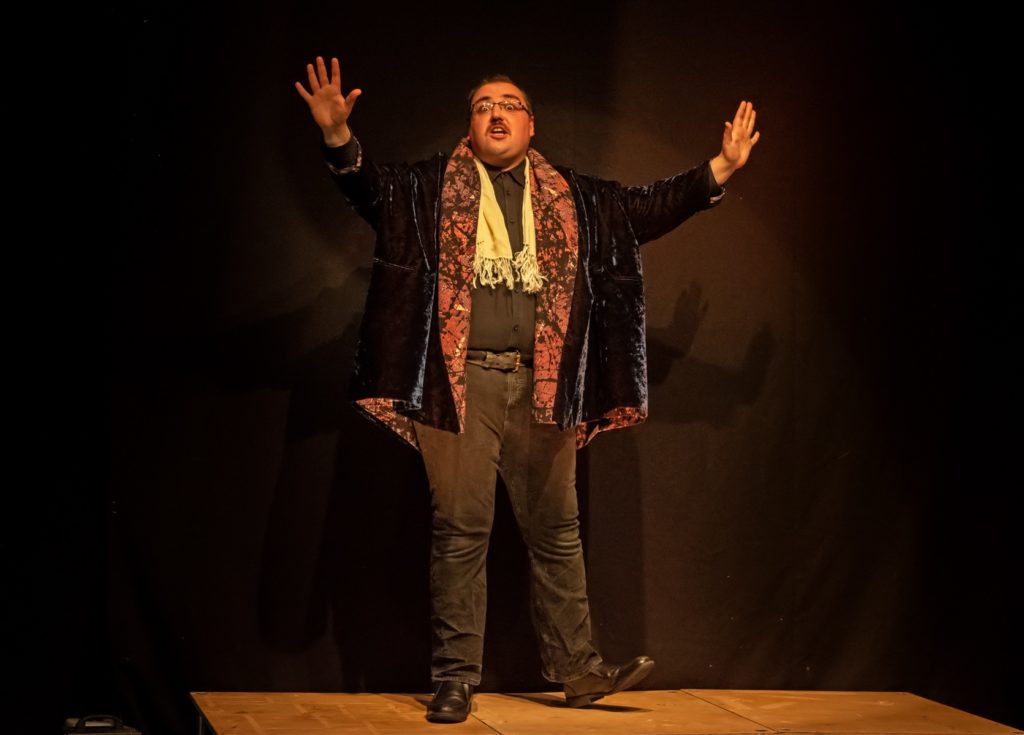
All the while, there is a story to tell, driven by narrator Hannay, MacRae’s upright Hannay playing it absolutely rod-straight, whatever hurdle is thrown his way from Hitchcock’s thriller and other Hitchcock works besides, as he ends up as murder suspect number one when a mysterious German woman with a gun, Annabelle Schmidt (Sanna Buck), dies in his arms after insisting on leaving the London Palladium by his side, desperate to impart important information.
On his tail as he heads to Scotland by train are policemen, secret agents and assorted women, and Marshall’s forces pull off Barlow’s obstacle course with elan, whether faced by re-enacting Hitchcock’s chase on the Flying Scotsman, the escape from the Forth Bridge, the first ever theatrical bi-plane crash [reprised from 1959’s North By Northwest] or a death-defying finale. Every Hitch homage defiantly goes off without a hitch.
Particularly strong is the chemistry between MacRae and Buck, a Swedish-born stage and film actor performing in York for the first time. MacRae, a professional with West End credits, now back in his home city, wholly lives up to Marshall’s billing that he would “balance brilliant playfulness against being earnest when required”, while Buck is to the Thirties’ manner born in her trio of roles as mystery German woman Annabelle, an alluring English femme fatale and a shy but helpful Scottish farmer’s wife. What a debut!
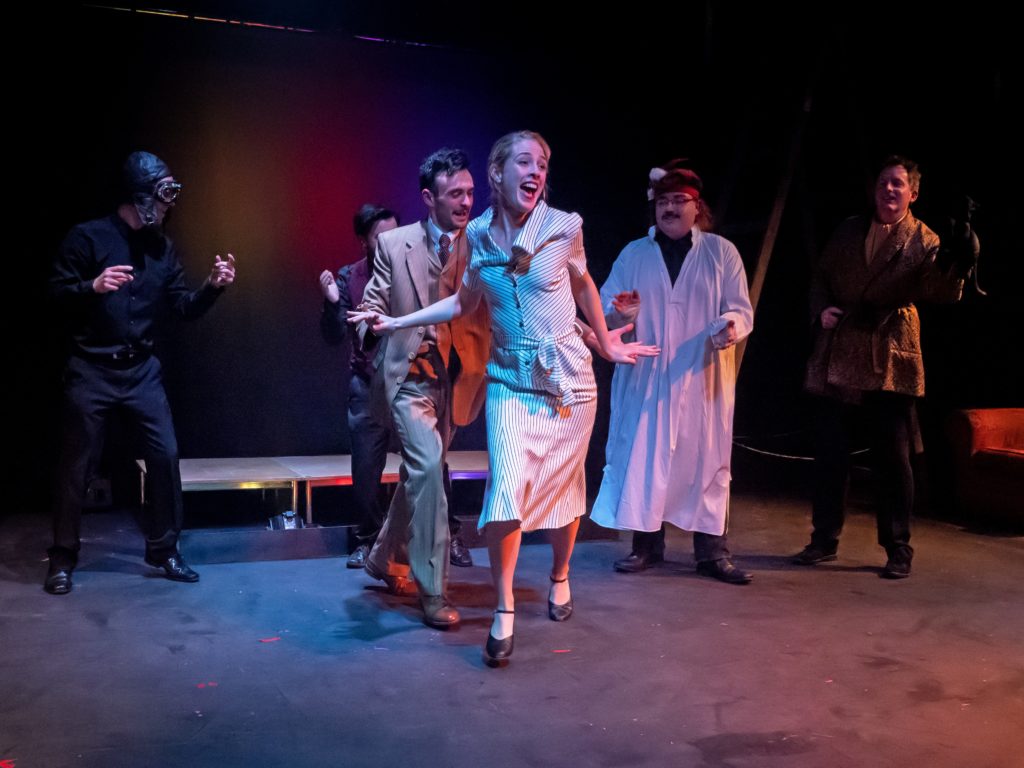
Praise too for Helen Taylor’s wardrobe, especially for MaCrae and Buck, and Richard Hampton and Graham Sanderson’s set and lighting designs.
What rotten luck that, after the supremely assured first night, cast illness should rob the company and audiences alike of further performances of such verbal vim, satirical brio, dextrous stage craft, inventive surprise and even a sudden outbreak of dancing, as taught in rehearsal to the ever-game cast by York Lindy Hop.
No matter how frustrating the sudden curtailment must feel to Harri and her cast, Settlement Players’ first live show since March 2020 has been totally worthwhile, reminding us of MacRae’s considerable talent, first shown in youth theatre days, introducing York to Buck and bringing together a pool of performers it would be good to see working together again.

York Settlement Community Players’ statement on Friday:
“We are very sorry to announce that, due to cast illness and circumstances beyond our control, all remaining performances of The 39 Steps are cancelled (Fri 12, Sat 13 and Sun 14 November).
“All ticket holders for these affected performances will be contacted by email and receive a full refund. We ask that you please bear with us and theatre@41 while the necessary arrangements are made and thank you for your patience at this time.
“We would like to express our utmost thanks to the cast and crew for their commitment and creativity over the past months. It is with a heavy heart that we make this necessary decision but look forward to putting on more great theatre in York next year.”

